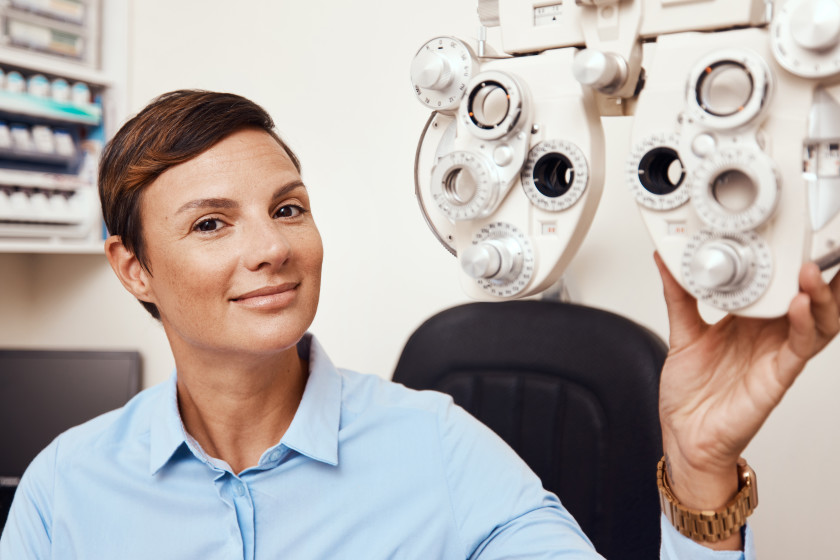Buy One, Get One 50% OFF Eyeglasses
* Restrictions apply. Ask a Team Member for details.

Why Do Eye Doctors Dilate Your Eyes During an Eye Exam?
As it becomes time for your yearly eye exam, you may be wondering if you need to have your pupils dilated. Although dilating your pupils is not painful, it can temporarily affect your vision until the eye drops wear off 1-2 hours after the exam.
So, do you have to get your eyes dilated? Most eye doctors highly recommend pupil dilation, as it gives them a better view of your eye’s health and your overall health.
What Happens When My Eyes are Dilated?
The pupil, which is the black circle in the middle of your eye, naturally changes in size to adjust the amount of light being let into your eye. When not dilated, your pupil will shrink when exposed to light. This can make it more difficult for your eye doctor to see into your pupil.
After being dilated, the pupil will no longer change in size when exposed to bright light. It will stay large, allowing your eye doctor to get a good view of your eye.
How Will They Dilate My Eyes?
Your eye doctor will administer a local anesthetic before applying eye drops to each of your eyes. The eye doctor will then wait until your eyes become dilated.
It takes about 15 to 30 minutes for your pupils to become fully dilated but can take less time depending on your eye color. Lighter-colored eyes, such as blue, green, or hazel, often become fully dilated faster than brown eyes.
Why Should I Get My Eyes Dilated?
A dilated eye exam allows your doctor to see into your eye with a fuller view. By dilating, or widening, the pupil, eye doctors can more easily see all the anatomy at the back of your eye. This aids in the detection of eye diseases such as diabetic retinopathy, age-related macular degeneration, or glaucoma. Your doctor will also be able to spot other ocular conditions, like retina detachments or ocular tumors.
It's possible you may have an eye condition or disease needing treatment and have no symptoms. A dilated eye exam helps your eye doctor detect early signs of possible eye conditions and determine treatment or preventative care options.
There are also many symptoms of systemic conditions that can be found through a dilated eye exam, such as diabetes and high blood pressure are commonly found during.
Tips for After Your Dilated Exam
Since our pupils naturally shrink when exposed to light, keeping them dilated may cause light sensitivity or blurry vision. The effects of these vision problems can be lessened with these tips:
Bring a pair of sunglasses with you to wear after the exam. Note: Your doctor may provide disposable sunglasses.
Ask a family member or friend to drive you home.
Limit your exposure to the sun or bright lights.
Wear blue light glasses when looking at your mobile device or computers.
If you wear contacts, bring your glasses along as well, as your doctor may not want you to put your contacts back in after the dilation.
How Often Do I Need a Dilated Eye Exam?
Your eye doctor can best provide you with their recommended timeframe for dilated eye exams, as it varies from person to person. Factors that may increase your need for dilated eye exams are:
A family history of harmful eye conditions, such as glaucoma
Having diabetes or high blood pressure
Being over the age of 60
Being of African American descent and being over the age of 40
Schedule a Comprehensive Eye Exam Today
Start taking control of your eye’s health today by scheduling a comprehensive eye exam at the eyecarecenter. Our experienced team of eye doctors will work alongside you to diagnose and treat your vision problems.
Find an eyecarecenter location near you to schedule an exam today!
